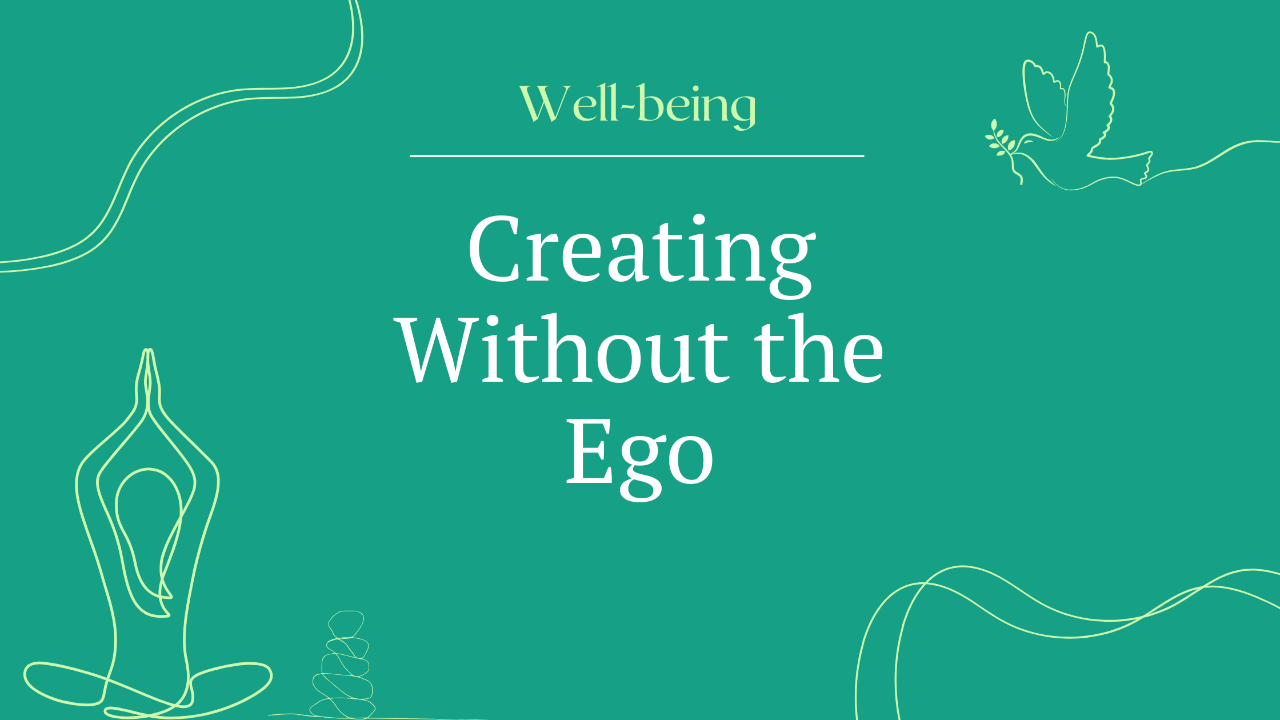✨ Creating Without the Ego: Lessons from Chapter 10 of the Tao
Sep 04, 2025
“One has both the time and the energy to accomplish any task.”
“One purifies oneself and is at peace with one’s environment.”
Reading these lines reminded me of something I’ve been trying to practice: slowing down—not to do less, but to come back to a way of living that actually feels sustainable.
It’s been a quiet shift. Making tea in the morning instead of reaching for my phone. Walking without headphones. Eating without rushing. Noticing how often I try to squeeze in more, even when I already feel tired.
This is the opposite of how I lived for years. My days used to be filled with pressure, performance, deadlines, achievement. I could get a lot done, but it came from adrenaline. It wasn’t sustainable. And it definitely wasn’t peaceful.
Now I’m asking: can I create and still keep my peace?
Slowness as a Resource
I used to think rest was a break from life. Now I think it’s the foundation.
The Tao says that when we’re in harmony, we have the time and energy to do what matters. Not because we’ve hacked our productivity—but because we’ve stopped leaking energy in ways we don’t even notice: stress, comparison, urgency, constant doing.
Peace isn’t the absence of work. It’s coming from a different place.
Ambition Without Ego
“One has no ambition to live a vain or luxurious life.”
“One keeps one’s physical desires subdued.”
This brought up a lot. I’ve always been ambitious. I built companies. I worked in tech. I chased the next title, the next project, the next version of success. And I got there. But I also burned out—physically, emotionally, spiritually.
When I studied Eckhart Tolle’s work, it gave me language for what I was experiencing: the part of me that was chasing had no endpoint, because it wasn’t coming from presence. It was trying to fill something.
Internal Family Systems helped me meet the inner parts behind that ambition. The one that thought success would make me safe. The one that didn’t want to depend on anyone. The one that believed being productive meant being worthy.
Jung helped me see how many of these patterns were unconscious—tied to early experiences, identity, and loss.
So now the question is: how do I create without performing?
How do I build something without building it from ego?
Refinement Over Recognition
“One strives only to surpass one’s own virtues.”
This line landed deeply. It reminded me that growth isn’t about competing. It’s about refining.
I don’t want to prove anything. I want to be in integrity.
I want to practice discipline—not for control, but for clarity.
I want to build things that matter—but from a place that’s rooted, not reactive.
This is the shift I’m working on.
Less reaching. More listening.
Less trying to be seen. More making things that feel true.
Integration, Not Erasure
I still have ambition. I still want to create. But now I’m more aware of where it’s coming from.
I don’t believe the answer is to kill the ego. I’ve tried that, and it doesn’t work. The ego isn’t something to eliminate—it’s something to integrate. To notice when it’s trying to drive. And to choose differently.
I want to build from presence, not pressure.
I want to work with rhythm, not resistance.
I want to keep learning how to live and create from a place of peace.
That’s what I took from Chapter 10.
Not another productivity tool. Not a big revelation.
Just a quiet reminder of what I already know—
That's when I’m aligned with life, I don’t have to force anything.
Things move. And I move with them.
Welcome to Ambition Redesigned! Where purpose meets progress.
Get one actionable tip delivered to your inbox every Monday.


